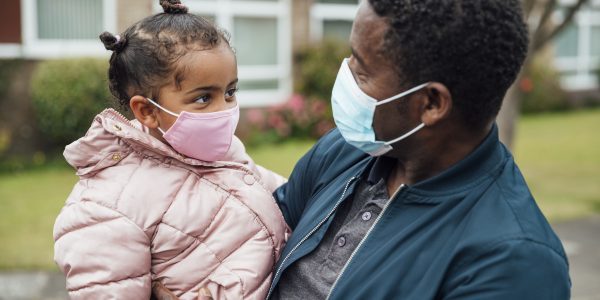
14/10/21
4 min read
The UK’s post-Brexit trade policy, which has been too focused on rushing through agreements at the expense of an underpinning economic strategy, risks leaving the country without a plan for the major economic change that Brexit is already starting to bring about, according to a new report for the Economy 2030 Inquiry.
Trading places – co-written by the Resolution Foundation and the Centre for Economic Performance at the London School of Economics, and funded by the Nuffield Foundation – explores how trade shapes, and is shaped by, wider changes to the economy – from the growing and shrinking of industrial sectors, to how attractive the UK is to the rest of the world as a place to do business.
The report notes that the UK’s entry into the EEC half a century ago fundamentally altered our national economic model by making it more open and competitive.
This resulted in faster trade growth with the EU than the rest of the world (annual EU trade growth outpaced ROW trade by 4 percentage points per year between 1973 and 1990), while exposing British firms to more competition from abroad and attracting foreign investment helped the UK to reduce its productivity gap with Germany and France (which had been widening up to 1975).
The UK’s more open economy led some sectors of the UK economy to grow – the increase in services exports as a share of the economy was twice the OCED average – while others shrank – the share of manufacturing employment fell by 17 percentage points between 1970 and 2000, far more than in comparable advanced economies.
The report says that the UK’s exit from the EU 50 years later, combined with the impact of the pandemic, is set to bring about similarly seismic shifts to the UK economy over the coming decade, but they are being completely ignored in a debate that is far too focused on the nuts and bolts of individual trade deals.
While the speed at which the UK has signed roll-over trade deals is impressive, the focus on new potential trade deals will struggle to move the dial on the overall openness of the economy.
Opportunities for further trade liberalisation are limited, say the authors, as 60% of all UK trade is now covered by existing trade deals while the UK’s biggest non-EU trading partner – the US – is not pursuing any new trade deals.
Some of the direct economic changes for post-Brexit Britain are already becoming clear. Trade in goods and services with the EU has fallen by 10-20% relative to non-EU trade. And while almost a quarter of retail firms continue to report EU related issues with exports, the teething troubles for most UK firms have eased significantly in recent months.
The report notes that over time far bigger shifts to the UK economy will take place, as a less open economy sees some sectors shrink, while others, which will be less exposed to foreign competition, could grow under the government’s support plans.
Britain needs a trade policy that aligns with its wider economic strategy for a post-Brexit, post-Covid world, says the report, including which sectors the UK will prioritise in both trade negotiations and investment and regulatory decisions.
While most trade deal discussions have focused on goods access, and British politicians of all parties want a greater role for manufacturing, the UK’s services exports have now caught up with its goods exports – at a time when the gap is widening among other advanced economies.
Brexit is also taking place at a time of connected but increasingly competitive trade superpowers: the US, EU and China. A sustainable plan for the UK’s trade policy will need to be embedded within a wider strategy that reconciles the UK’s wish as a smaller open economy to have good relations with all three trading blocs, with its ambitions to play an active geo-political leadership role.
Finally, the report says that Britain’s conversation on trade must focus on how to adapt our economic strategy to find alternative productivity drivers, in the face of lower foreign competition and investment. Failing to do this could lead to a significant relative decline of UK living standards, which will make the government’s ‘high wage, high skill, high productivity’ economy even harder to reach.
Sophie Hale, Principal Economist at the Resolution Foundation, said:
“For the first time in 50 years, the UK has a proper, independent trade policy. But our trade debate has focused almost entirely on the nuts and bolts of individual trade deals, completely missing the big picture that a successful trade policy requires an economic strategy.
“Trade is about far more than tariffs and quotas. It can shape a country’s economic strengths and weaknesses, which in turn affect the kinds of jobs many people do up and down the country.
“This profound economic change is already starting to take shape in post-Brexit Britain. We urgently need to align our trade policy with a wider economic strategy so that it supports the kinds of jobs and sectors that we want to expand over the next decade.”
Swati Dhingra, Associate Professor at the Centre for Economic Performance, said:
“Trade policy needs to fit into the wider economic policy agenda of the UK. Trade agreements, focussing on piecemeal market access, are not going to deliver the economic objectives of inclusive sustainable growth.
“The Brexit debate has increased awareness and understanding of economic integration. Now that knowledge needs to be harnessed to redefine the UK’s place in the world trading system, at a time when the pandemic and global tensions have caused widespread economic disruptions.”






















































